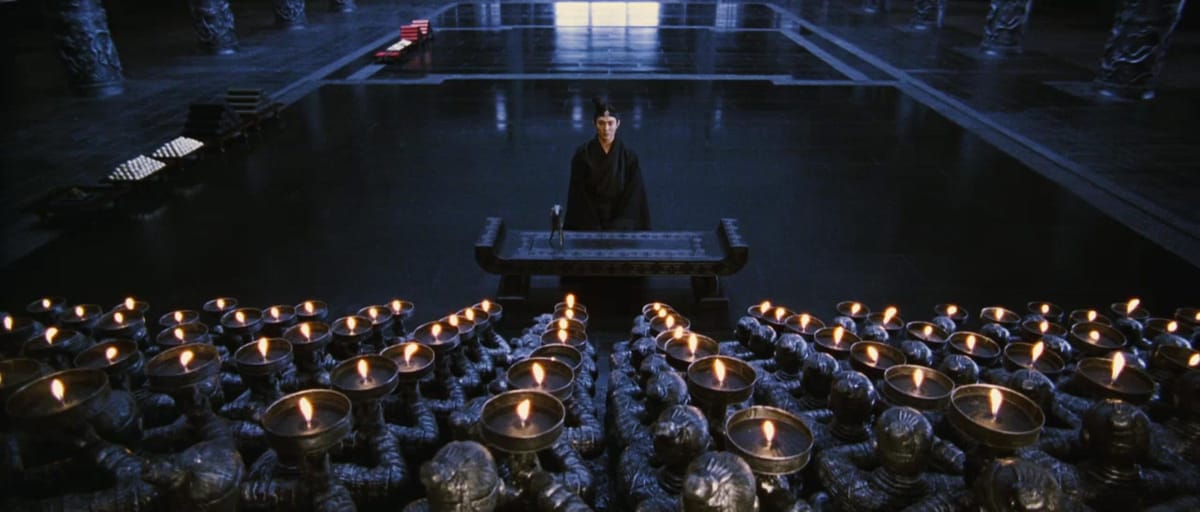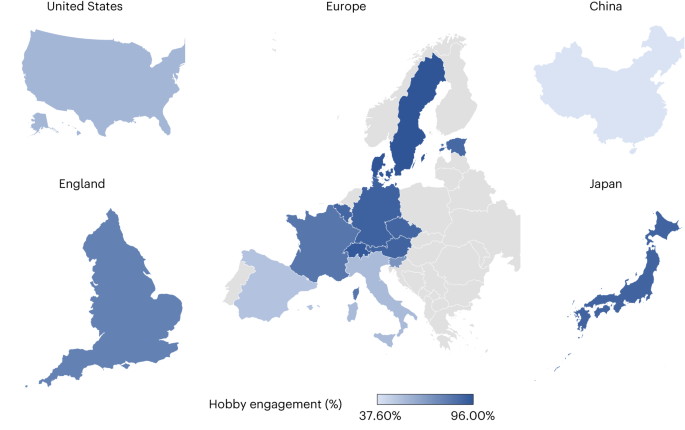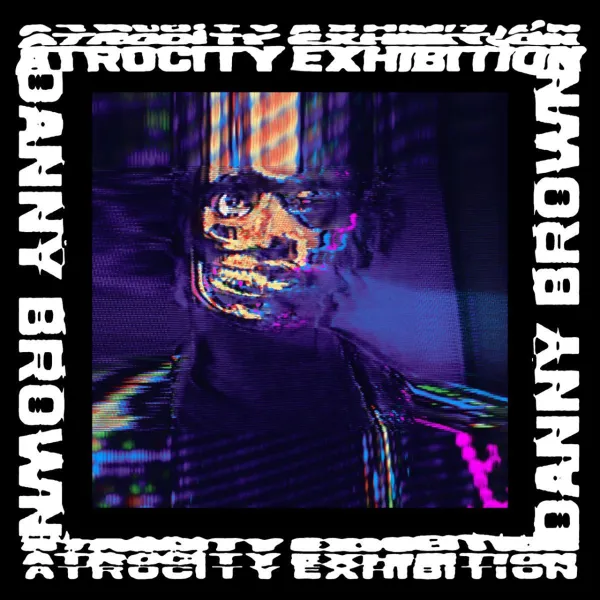Lessons From Hero

Hero tells the story of a nameless swordsman and a king. The swordsman has caught the king's attention by defeating three assassins of great renown. He is brought before the king to receive his reward for his accomplishments, and regale him with his tale. As the story develops, the two men trade accounts of the events leading up to their meeting, each presented in a different colour.
The film begins with a brief cinematic, which introduces the king, a ruthless expansionist set on conquering all of China.
The main story is presented in black. This acts as the anchor point of the narrative, with the men exchanging stories from the vast, black throne room. The choice of black is mainly historical. Of the five traditional Chinese elements, water was the one associated with the Qin dynasty of the setting. The colour corresponding to water was black. It also serves a thematic purpose. As well as offering a contrast to the vibrantly coloured sub-stories, the dark colour scheme works with the imposing architecture and endless rows of hooded courtiers and armoured guards to communicate a sense of oppression and control. The film opens with a monologue which outlines the nameless swordsman's vague background, and explains that he has been summoned to court by the king of Qin for his astonishing accomplishments. We soon find out that he has defeated three assassins from an enemy kingdom in battle, explaining the emphasis on security. Nameless is stripped naked and searched when he arrives at the palace, and he is instructed not to come within 100 paces from the king. The king opens a box containing the tip of the spear belonging to Sky, the first of the assassins. He invites the swordsman closer, to 20 paces away, to tell his story.
Here we enter the first vignette, depicted in grey. Nameless says that he located Sky in a chess house within his prefecture. He describes Sky as a lover of chess and music, two skills which were held in high estimation in Ancient China. This suggests that Sky was well educated, and perhaps even held a high office in Zhou, as these were pastimes associated with the scholar-officials of the time. This is the first instance of one of the main themes of the film; that a warrior must have pursuits outside of fighting to realise their full potential. This has applicability in the modern day. It is easy to fall into a cycle of sleeping, eating, commuting, and working, leaving no time for hobbies. This is ultimately an unfulfilling way to live. A 2023 meta-analysis by Nature Medicine of five studies on the topic found that people with hobbies reported higher levels of life-satisfaction, fewer depressive symptoms, and greater feelings of wellbeing than those without hobbies. (Link below). Hobbies, such as the game of chess (which resembles modern-day Go) and music depicted in the film, involve creativity, cognitive stimulation, and self-expression. In the film, the fights are choreographed using a technique called wire fu, a portmanteau of "wire-work" and "kung fu". This is used to depict the skill of the martial artists as transcending normal human limitations. Sky fights against seven elite guards from the Qin court, floating effortlessly through the air as he attacks and dodges. He defeats them easily, without even unsheathing his spear. Nameless arrives to arrest him, and they engage briefly before pausing to request a song from the blind musician at the chess house. As he plays, Nameless and Sky continue their duel within their minds. This is an example of visualisation, albeit an exaggerated one. Visualisation training consists of picturing oneself performing a task, as vividly as possible. It has been shown to improve performance of said tasks when practiced regularly. (Link below). The musician abruptly ends his song when one of the strings on his instrument breaks, and both men spring into action. Sky attempts to disorient Nameless by spraying water between them, but Nameless sees through the trick and ends the fight in one swift strike, killing Sky.
The king is impressed, and he applauds Nameless' skill. He opens two more boxes, these containing the swords of the other two assassins, Broken Sword and Flying Snow. He gets agitated as he recalls a previous attempt they made on his life, noting their indomitable power. He questions how Nameless could have defeated them and bids him continue, inviting him closer, to a distance of 10 paces.
The second substory begins here, depicted in red. The red represents the themes of jealousy, lust, and passionate love described within the story. Nameless recounts travelling to the neighbouring kingdom of Zhou, to a calligraphy school where the assassins were rumoured to be hiding. He arrives at the same time as a large number of Qin troops, and enters the school under the guise of being a citizen of Zhou, there to carry out his father's dying wish. He meets with the master of the school and requests a scroll from Broken Sword, with the character for "sword". He explains to the king that he believed he would be able to discern some secret to Sword's swordsmanship by studying his calligraphy. The association between calligraphy and swordsmanship is an old one. Both skills aim towards perfection of physical movements, emphasising fluidity, control, and, ultimately, self-expression. At the highest level of both these skills, the Chinese refer to a concept known as "wu wei". This phrase, meaning "nonaction", describes a state of mind where one is detached from what they are doing, allowing their body to move of its own accord. This is similar to the modern concept of flow states, which occur when a perfect balance of high challenge and high skill is struck. Flow refers to being in a state of complete focus, where everything but task at hand seems to melt away. It is peak performance. Nameless seeks to understand Broken Sword's skill as a swordsman, and so attempts to learn about it from his skill as a calligrapher. Before Sword can get started on the scroll, the Qin army attacks. As arrows rain down, the students of the school attempt to flee, but the master delivers an impassioned speech about the importance of their work. He proclaims that although the arrows may kill them and destroy their home, their written word will endure. He sits down to continue writing, and the students do the same as the arrows keep coming. This speech is reminiscent of the phrase: "the pen is mightier than the sword". The notion that the written word is more effective than violence at effecting social change is especially poignant today, given the events transpiring in Palestine. With more than 100 Palestinian poets, writers, and journalists having been killed since last October, one must ask an uneasy question: how mighty is the pen when there is nobody to wield it? One Palestinian poet, Mosab Abu Toha, recently called upon the people of the world to become writers. He implored us to express our thoughts, feelings, and experiences of the world, adding, "...but let Gaza be a part of it." (Link below). I hesitate to draw this comparison any further, for reasons I will outline later. Returning to the film, the king interrupts the story to comment on the courage of the calligraphers, before asking about the significance of the character "sword". Nameless explains that there are normally 19 variations of the character, but he had requested the 20th, as it would be the one to reflect Sword's swordsmanship. The king condemns the number of variations of a single character, declaring that once he has unified the land, he will standardise the language. Nameless continues. He and Snow go outside to deflect the arrows, while Sword remains inside to work on the scroll. Once the barrage has finished and the Qin army has retreated, Nameless returns to Sword to see the finished scroll. Nameless acknowledges Swords skill as a calligrapher; Sword acknowledges Nameless' skill as a swordsman. Nameless studies the scroll that night, hoping to gain some insight before meeting with Sword and Snow in the library. Here, he reveals that he is in fact a prefect from Qin, and has killed Sky. He passes on a message from Sky; that Sky had only ever loved one person: Falling Snow. Nameless states that Sky believed Snow would avenge his death, challenging her to a duel at the Qin encampment in the morning. Snow digs a piece of Sky's spear out of a box in her possession. Sword sees this, and sleeps with his apprentice, Moon, in a fit of jealousy. Snow, in turn, witnesses this and stabs him in retribution. The following morning, Moon attacks Snow, but proves no match for her. Snow goes on to fight Nameless, but is emotionally unstable and unable to focus, resulting in Nameless defeating her easily. Back in the throne room, the candles blow away from Nameless towards the king. The king remarks on the incongruity of the swordsman's story with his own experience encountering the assassins. He describes them as "honourable and exceptional", in contrast with Nameless' characterisation of them as selfish, jealous, and petty. He denounces the story as a lie, and speculates that Nameless and Sky plotted together, with Sky sacrificing himself to make the plot possible. He commends Sky's bravery, but wonders why Sky would have agreed to sacrificing himself. He concludes that Nameless must be capable of a unique assassination technique that he would be unable to escape. He further speculates that this technique is only effective within 10 paces, otherwise he would not have needed to defeat Falling Snow or Broken sword to get closer.
He then begins to retell the story, as he imagines it would have happened. This version of events is presented in blue. The blue represents peace, prudence, and a deeper, truer love than the one depicted in red. In this version of events, Nameless demonstrates his skill to the two assassins, and they choose to help him, agreeing to meet him at the Qin encampment the following morning to die together. However, on their way there, Snow stabs Sword with a non-lethal strike, so that he will not have to die too. Sword was about to do the same to her. Snow fights Nameless, giving her life, with Sword and Moon arriving too late to intervene. The king goes on to theorise that Nameless and Sword would have fought in their minds, not with the intention of doing any harm, but as a tribute to the fallen Snow. Sword would then have instructed Moon to give his sword to Nameless, so that it may never be separated from Snow's. In the king's version of events, Sword and Snow are characterised as level-headed and dutiful, and utterly devoted to each other. Taken aback, Nameless asks how the king saw through the deception. The king explains that the candles in the throne room revealed Nameless' true intentions to him. Nameless admits to the ruse, and reveals his true backstory: that he was originally from Zhou, but his family was killed by Qin soldiers and he was raised in Qin. Once he learned of his true origins, he decided to kill the king, spending the next ten years perfecting a move that would allow him to kill without fail provided he is within 10 paces of his target. The king applauds his skill and accepts his fate, but the candles start flickering in random directions, signifying Nameless wavering. The king notes this, and asks why he hesitates. Nameless then relates the true version of events, and the true nature of Broken Sword.
The white story then begins, the white representing the purity of truth. It begins with a demonstration of Nameless' technique. He is so precise, in fact, that he can stab through someone's body without hitting any vital organs. He used this technique on Sky, who is not actually dead, and he asks that one of them allow him to perform the move in front of the Qin soldiers. He claims that this is the only way due to the high level of security at the palace. Snow dismisses this, calling the guards "inconsequential", and saying that the king should have died when she and Sword stormed the palace three years prior. When pressed to explain his failure, Sword reveals his belief that the king ought not be killed. He further states that as long as he is alive he will prevent Nameless from killing the king. Nameless is troubled by this, as Broken Sword is the only one of the assassins to match him in skill. Snow urges Nameless to help her fight Sword, and he agrees, although he hesitates momentarily, believing it to be dishonourable. He eventually joins the fight, and Snow lands an incapacitating strike. Enraged by seeing her master cut down, Moon attacks Nameless, although she is no match for him, and Sword soon orders her to stop. Snow meets with the master calligrapher, asking him to go with Nameless to the palace, and return with an indication of the result of the mission: red for success, yellow for failure. She faces Nameless the following morning, falling to him. As Nameless makes his way to the palace, he is intercepted by Sword, who once again implores him not to kill the king.
Broken Sword then offers his backstory, relating meeting Snow, agreeing to kill the king with her, and practicing calligraphy in order to refine his swordsmanship. He describes storming the palace, and his fight with the king. At the climax of the duel, Broken Sword disarms the king and cuts him, although he only lightly nicks his neck. When questioned by Snow, he explains that through his practice of calligraphy, he came to the conclusion that the king of Qin must not be killed. This portion of the film is marked by its use of green. In Ancient China, green was associated with health, harmony and life. This relates to the vision Sword has for the world. He attempts to dissuade Nameless from his goal, but he is resolute. Sword leaves him his sword, and a message in the sand, two words: "tianxia". Literally translated, it means "under heaven". The English sub and dub offer a different translation: "our land", but this interpretation is problematic, for reasons I will get into later. Nameless explains that Sword believed the only person who could end the bloodshed and suffering was the king himself, by uniting the land "under heaven". The king weeps openly when he hears this, exclaiming his relief to be finally understood, and his surprise that it was an assassin who had managed to see his true intentions. The candle flames lie still. The king asks Nameless how he plans to kill him without a sword. "By taking yours," he replies. This amuses the king, and he throws him his sword, declaring that he is unafraid of death now that he knows Broken Sword understands him. He turns his back to the assassin, facing the scroll with the character "sword". As courtiers and guards pile in, Nameless takes the sword and points it at the king. The candles blow fiercely towards the king. The king suddenly deciphers the scroll. It contains no secret to Sword's swordsmanship, but rather, it represents his highest ideal. At the first stage, the sword and the man become one; at the second, the sword resides not in the hand, but the heart; at the last, the sword disappears entirely. The swordsman sheds any desire to kill, uniting himself with the world around him. Nameless leaps towards the king. The candle flames lie still. He strikes the king with the hilt of the sword, sparing him. He bids the king remember the ultimate warrior's ideal. He turns to leave, and the guards surround him, waiting for the kings order to kill. The master calligrapher rides back to Snow and Sword waving a yellow flag. Snow realises that Nameless must have given up willingly, and demands to know what Sword said to him. He repeats: "tianxia", and she berates him, questioning whether that is all that is in his heart. He replies that she is there too, and she asks him to prove it by fighting her. He begrudgingly agrees, but drops his sword on purpose, allowing her to stab him. She is baffled; he explains that he wanted her to believe him. As Moon arrives to the scene, Snow stabs herself through Sword, killing them both. Back at the palace, the king orders Nameless' execution at the behest of his court, and Nameless faces the barrage of arrows unflinching.
The film ends with scrolling text which states that Nameless was buried a hero, and the king would go on to conquer and unite all of China, becoming its first Emperor. It closes stating that, to this day, the people of China refer to it as "tianxia". The translation of this phrase caused some controversy on release. The translation "our land" implies a sinocentric viewpoint, more in line with the term "Huaxia". This interpretation lends itself to xenophobia and nationalism. By contrast the translation "under heaven" refers to the world as a whole. The latter is more in keeping with Broken Sword's philosophy. He promotes unity among all people, believing everyone to be equally deserving of life and nurture. He opposes the assassination of the king because he sees his desire for conquest as a path towards eventual peace. As long as the kingdoms are separate, there will be war. It is for this reason that I was reluctant to draw the comparison of Israel and Palestine any further. In the film, the king and Broken Sword, and eventually Nameless, believe that the king's expansionism will eventually result in unity, and is therefore justified. The same does not apply to the events transpiring on the Gaza Strip. It is impossible to frame a blatant genocide as an attempt to foster unity. The film was released in the wake of the September 11 attacks, and the director, Zhang Yimou, expressed a hope that the themes of harmony and peace could be interpreted more globally, encouraging peace "under heaven". That same sentiment could be helpful now.
Links:
Effects of hobbies on mental health:

Effects of visualisation training:
Mosab Abu Toha:
An open invitation to all people in the world to become writers.
— Mosab Abu Toha (@MosabAbuToha) December 30, 2023
There is a duty that everyone should take on, that they need to write about what they see and feel. It can be about everything. About your dinner with family, you trips to the seashore, watching the sunset, etc.
But…




